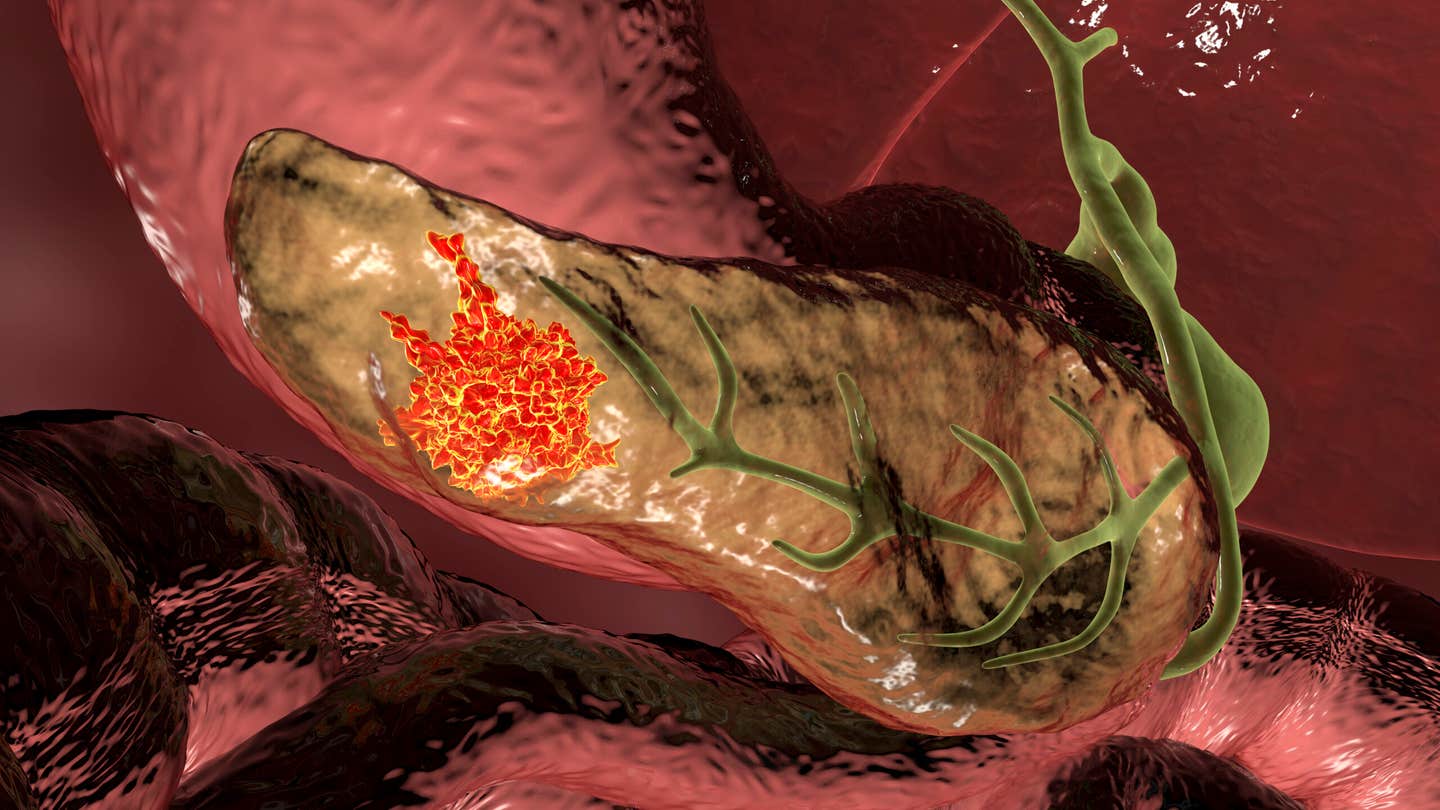New drug combination shows promise in pancreatic cancer clinical trial
Study finds encouraging preliminary results from a phase 2 clinical trial involving a new drug combination for treating pancreatic cancer

Clinicians at Georgetown University’s Lombardi Comprehensive Cancer Center have announced encouraging preliminary results from a phase 2 clinical trial involving a new drug combination for treating metastatic pancreatic cancer. The trial, which includes the experimental drug BXCL701 and the immunotherapy drug pembrolizumab (Keytruda), shows potential in treating this aggressive form of cancer.
The findings, highlight the progress made in a field where traditional treatments have often fallen short. BXCL701, developed by BioXcel Therapeutics, is an oral drug known as an immune activator. It works by inflaming the tumor's microenvironment, thereby enhancing the effectiveness of immunotherapies like pembrolizumab.
The Challenge of Pancreatic Cancer
Pancreatic cancer is a leading cause of cancer-related deaths, ranking third overall. The disease has a grim prognosis, with a 5-year survival rate of only 13% for all stages. This figure drops to a mere 3% for patients with metastatic disease, where the cancer has spread beyond the pancreas. The lack of early detection methods often results in late-stage diagnoses, making effective treatment difficult.
“Pancreatic cancer is a devastating disease that is difficult to treat with standard methods, including chemotherapy,” explains Dr. Benjamin Adam Weinberg, the lead investigator of the trial and an associate professor of medicine at Georgetown Lombardi. “Using immunotherapy alone has generally not worked due to the inability of immune cells to infiltrate pancreatic tumors because of dense fibrous tissue that walls tumors off microscopically from the immune system. Hence the need to find another approach.”
The promising human trial follows successful pre-clinical studies in mice, led by Dr. Louis Weiner, director of Georgetown University’s Lombardi Comprehensive Cancer Center.
Published in 2021, these studies showed that BXCL701, when combined with an immunotherapy drug, significantly boosted the animals’ immune responses, slowing or even stopping tumor growth. The studies also revealed that natural killer immune cells flooded the tumors, making the cancer cells more receptive to the immune system’s attacks.
Related News
In the initial phase of the trial, which primarily focused on the safety of the drug combination, six patients (three women and three men) with a median age of 57 were enrolled.
The results have been promising: one patient showed no disease progression after 18 weeks, and another had stable disease at nine weeks. The progression-free survival rate was 50%, indicating no change or even signs of tumor regression as determined by imaging.
Additionally, three patients experienced significant reductions in CA19-9, a marker indicating the presence of pancreatic cancer. Reductions of 100%, 97%, and 73% were observed. While CA19-9 is not as effective a screening tool as PSA for prostate cancer, it is useful for monitoring disease activity in patients with advanced pancreatic cancer. Notably, all patients in this study had elevated CA19-9 levels.
Dr. Weinberg notes that the main side effect observed so far is low blood pressure, which can be managed by administering a lower dose of BXCL701 during the first week of treatment. Other side effects include anemia, nausea, and immune-related arthritis, the latter of which has responded to oral steroids.
“Historically, no one has responded to immunotherapy in pancreatic cancer, so even one response and another with stable disease could be early signs of efficacy,” says Weinberg. “A third patient had an initial drop in their CA19-9 marker even though they had disease progression on imaging, and this may be more early evidence that this drug combination has anti-cancer effects.”
As the trial progresses, further studies will be needed to confirm these findings and determine the long-term efficacy and safety of this treatment approach. For now, the work of the clinicians at Georgetown University’s Lombardi Comprehensive Cancer Center represents a promising step forward in a field where breakthroughs are desperately needed.
For more science and technology stories check out our New Innovations section at The Brighter Side of News.
Note: Materials provided above by The Brighter Side of News. Content may be edited for style and length.
Like these kind of feel good stories? Get the Brighter Side of News' newsletter.
Joshua Shavit
Science & Technology Writer | AI and Robotics Reporter
Joshua Shavit is a Los Angeles-based science and technology writer with a passion for exploring the breakthroughs shaping the future. As a contributor to The Brighter Side of News, he focuses on positive and transformative advancements in AI, technology, physics, engineering, robotics and space science. Joshua is currently working towards a Bachelor of Science in Business Administration at the University of California, Berkeley. He combines his academic background with a talent for storytelling, making complex scientific discoveries engaging and accessible. His work highlights the innovators behind the ideas, bringing readers closer to the people driving progress.



